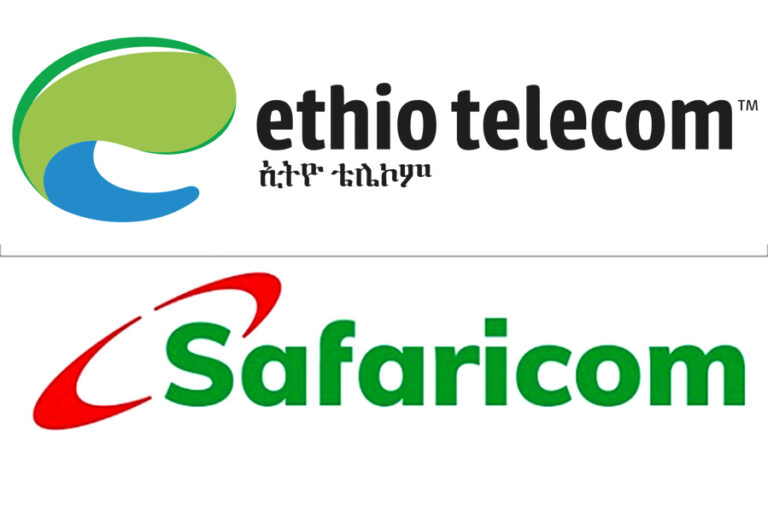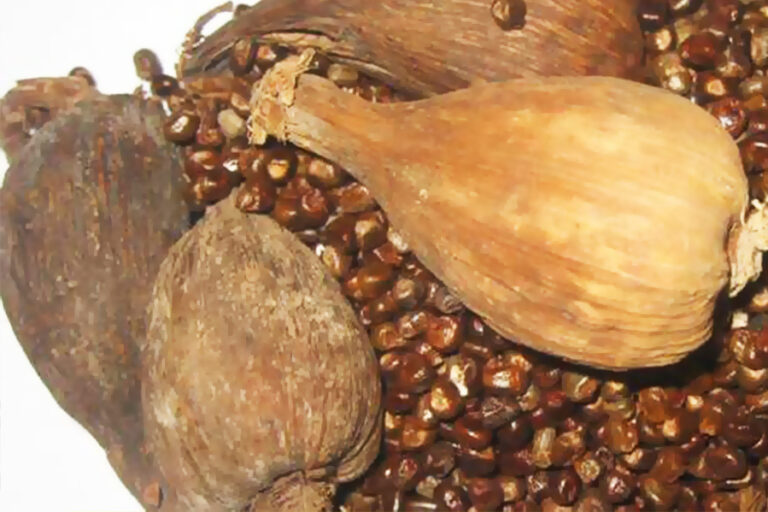Abinet Gebremeskel sues his longtime ally Sheik Mohammed Hussien Al Amoudi for an estimated 640,545,367 birr in connection with the construction and ownership of Bole Towers located around Wello Sefer.
The two prominent businessmen have been partners for a long time and according to court documents in 1994 they established Bole Towers PLC with ten million birr capital, though the capital increased to 545 million birr in 2018.
The charge Abinet submitted to the Federal Higher Court Lideta branch demanded that his share in the PLC increase based on the cost he paid for the construction of the buildings from his own pocket which is 215,545,367 birr and 425 million birr loan Bole Towers received from Dashen Bank to be considered as contribution to the capital of the building.
Abinet has 40 percent share on the towers while Al Amoudi has 60 percent share. Bole Tower PLC is engaged in constructing buildings used for office, trading and housing, and apartments. The firm owns two buildings named as Bole Towers A and Bole Towers B which together lies on 5,189 square meter width located in Kirkos sub city on Africa Avenue, adjacent to the roundabout of the area commonly known as Wello Sefer.
Abinet had served as the Chief Executive Officer (CEO) of MIDROC Ethiopia for one year before he left on July 8, 2021.
Recently Sheikh Mohammed Hussein Al Amudi has counter sued Abinet for unpaid fee from his profit of National Oil Ethiopia Plc (NOC) since 2011 which amounts to over 800 million birr.
Plaintiff Al Amudi claimed to have a share of two billion birr in profits from 2011 to 2021. He complained that various payments had been deducted and that about eight hundred and fifty million birr had not been paid.
Abinet owns a 15 percent share in the National Oil Ethiopia Plc (NOC) and Al-Amoudi 70 percent while Tadesse Tilahun has a 15 percent shares in NOC.
Abinet sues Al Amoudi for 640.5 mln birr
Ethiotelecom, Safaricom in loggerheads over infrastructure sharing
Severe disagreement arises between Ethio telecom and Safaricom Ethiopia Telecommunication PLC regarding the price and currency of payment for infrastructure sharing scheme.
“In September Safaricom has submitted 3 accesses requests based on the Ethiopian Communication Authority’s directive” Matthew Harrison-Harvey, Chief External Affairs and Regulatory Officer at Safaricom Ethiopia told Capital. He said “the first one is on the infrastructure sharing which has a number of components including sharing towers, transmission capacity and dark fiber. The other is in-to connection to enable customers of the of the two telecom operators to connect each other and the third is for National roaming.“
“Since September we have been in discussion with Ethio Telecom and we are still on it,” said Matthew, adding “we are expecting to reach an agreement within a month.”
In both side the key issue which leads to the disagreement is the pricing of the service and in some cases the currency of the service.
Officials from Ethio telecom told Capital that the public enterprise has requested Safaricom to make parts of the payment with foreign currency as Ethio telecom pays to build the infrastructures in foreign currency. However Safaricom officials are arguing that their company is registered locally thus they should pay in birr.
Ethio telecom has 7,100 towers and over 22,000Km of fiber optics all over the country.
“We are trying to resolve the issue and reach an agreement until the end of this month” said Matthew, adding that if the commercial agreement is not achieved then Safaricom will take the issue to the governing body, the Ethiopian Communication Authority (ECA).
The Authority is responsible for mediating negotiations if any dispute arises between operators. It may intervene at its discretion or, if requested by a party to an access agreement to determine whether the infrastructure sharing, collocation charges and compensation are cost-based, reads a telecommunications infrastructure sharing and collocation directive issued last year.
The directive states that all telecommunications operators have the right to request infrastructure sharing services from any telecommunications operator. The operators that received an application should also negotiate the terms of an agreement in good faith and not obstruct the negotiations, according to the draft directive. However, the directive gave room for the requested telecom operator to decline any application. It can reject an application if it has insufficient capacity or space; issues with safety, reliability, incompatibility of facilities; for integrity and security of the public telecommunications network and service; and if sharing is not economically or technically feasible.
On its Telecommunications Competition Directive No. 798/2021 the authority defined infrastructure Sharing as various kinds of arrangements to share an infrastructure sharing and collocation provider’s active and passive infrastructure, including, but not limited to, the sharing of network elements, antennas, switches, radio access nodes, systems, equipment, facilities, premises or rights of way, with an infrastructure sharing and collocation seeker, subject to an agreement between the parties
Interconnection involves the physical, technical and logical linking of the telecommunications networks of different operators to allow users of one operator to communicate with users from another or to access services provided by another operator.
Safaricom, which paid 850 million dollars for a 15-year license, is moving ahead with its infrastructure development project, having contracted Huawei and Nokia for its network development.
The operator wants to develop tower infrastructures on building-tops and import materials for its operations.
Two months are left before Safaricom Ethiopia launches what will be the country’s first private telecom services, but an infrastructure sharing agreement with the state-owned Ethio telecom remains unsolved.
In a related development, on Thursday March 10, 2022 Safaricom Ethiopia has signed a deal with Ethiopian Electric Power to use the latter’s dark fiber optics cable.
Under the deal, Safaricom will use a network of optical ground wire (OPGW) cables already installed along the high voltage transmission lines owned by EEP. The agreement will stay for five years.
HISTORY CANNOT BE NEGELCTED
When human beings are organized in large and formal institutions, hence artificially insulated from individually prompted emotions and anxiety, the tendency is to semi-consciously distort things, particularly past events. This is because when individuals cease to be singularly accountable, responsibility is always watered down and remains at its original and elevated level only amongst those with high level of integrity. Even though authority was first initiated to sustain integrity at the community level, in modern times it has degenerated as a taskmaster of systemic manipulation. That is why weak souls across the planet continue to crave for the power of authority. In centuries past when the role of the individual was visible and significant, be it at the level of the family or beyond, history had to be transmitted honestly and perforce, as the distilled experience was essential for the survival of the collective!
On the other hand modernity, which always had a built-in bias towards systemic manipulation at all levels (family, market, state, international, etc.) keeps on distorting the past to fit the present, so that the gullible sheeple will be goaded to intended (by dominant interests) future destinations, not excluding the usual slaughterhouses. Even here where manipulation is comfortably settled and appears to have been managed well, gross distortion of history can often times forcefully bring issues to the fore via major global disasters. The distortion of events that led to WWI and WWII are cases in point! Today we will not go through the various reasons or pretexts that led the global sheeple to engage in these criminal wars of the banksters (remember the old saying; all wars are bankers wars), rather we will look at distortions that are piled sky high during and after the culmination of the most costly war in human history, WWII!
Immediately after WWII, the global sheeple was very grateful and felt indebted to those who convincingly fought fascism. Appreciation was proportional to sacrifices paid. In Europe, it was the ‘Red Army’ of the USSR that was the undisputed hero of the war. The USA, UK and others members of the Allied Forces came at a distant second. The USSR lost over 20 million people. The US and the UK collectively lost about 2 million. This is history, whether we like it or not. Eighty years later, after the usual indoctrination and manipulation by empire’s relentless propaganda, newer generations were led to believe in a grossly distorted history. The current history of the war (at least in the
West) insinuates; it was the western powers of the Allied Forces that brought down the Hitler fighting machine to its knees and liberated Europe. It is such misleading propaganda supported by the likes of the Hollywood movies that makes history fail in its important mission of teaching and forewarning. No wonder the famous poet once remarked; ‘ the only thing humans learn from history is that they don’t learn from history.’ Wolfgang Goethe!
The current dangerous and very distorted impression of the Russian nation by the sheeple as well as the majority of elites in the dominant Western countries need to be deconstructed for the benefit of all humanity, before some psychopathic idiots make blunders whose consequences they cannot even imagine let alone fully grasp. Russia has always been a power to reckon with and a great one at that with colorful and highly integrative culture encompassing many of the near abroad countries of the former USSR. Comparatively speaking, the US is not only a young nation of mostly European immigrants without much searing experience, save the civil war. Unlike Russia, its neighborhood is not necessarily brimming with diverse cultures, though it can still claim to be a ‘melting pot’ to most of the émigrés. As a young nation, un-tempered and unburdened by history it still radiates an aura of simplicity that is taken by many a diplomat, to be refreshingly naïve. So far all major interactions of violent nature involving the US have taken place outside of its soil. In a way, this is a very serious shortcoming, as it tends to undermine the subtly engrained nationalism of other nations that were internalized, almost invariably, through blood and sweat. The US’s lack of appreciation, when it comes to the variegated history of others, tends to make it a reckless nation with massive destructive power. Only those who have had the agonizing experience of real and punishing wars can appreciate the kind of determination people like the Russians have formed in their psyche. Unfortunately and unlike the delusional armchair warriors of today, this is what the real American heroes had to say about the most brutal war ever conducted by the human animal.
Price of Corrorima spice drops sharply
The price of the popular spice on Ethiopian cuisine, Corrorima, which is also known as Ethiopian Aframomum, or false cardamom, has massively dropped due to the aftermath effect of COVID-19 and initiative for mass production besides the traditional wild harvest.
Experts in the spice industry said that Corrorima that was sold about 380 birr per kilogram about three years ago has lost its value significantly in the latest market.
As per the market observation Capital conducts at Addis Ababa on average the price of the popular spice that is mainly used for berbere, hot spice blend that is an integral ingredient in Ethiopian cuisine, and nit’ir qibe, clarified butter with different species, is now about 80 birr per KG.
Capital observed that besides the price reduction the product is also easily seen everywhere even street vendors are selling it, which is highly uncommon in the past.
According to Addisu Alemayehu founder and board secretary of the Ethiopian Spices, Aromatic and Herbs Growers and Processors Association (ESAHGPA) and owner of Dabase Business Group Plc, the price reduction is related with the initiative and incidents happened in the past three years.
“There are different initiatives conducted by NGOs to modernize the production and harvest Corrorima. In the past the spice was cultivated wildly, where women who harvested the product have been vulnerable for rape and attack by wild animals and besides that it is also related to deforestation issue that attracts NGOs to change the circumstance to cultivate the plant in their backyards,” he said.
Through the cultivation practice change scheme, NGOs have been aggressively producing the seedling and distributed it for farmers in the past couple of years, “now the plant is giving its production, which increases the output of Corrorima.”
Moges Ashenafi, Spice Extension and Production Team Leader at Ethiopian Coffee and Tea Authority (ECTA), said that despite the initiative to release new Corrorima verities breeds at this stage is very limited but the output is growing due to coffee farmers who are mainly producing Corrorima aligned with their coffee bush are expanding their production, “farmers are diversifying their production to expand their income when the price of coffee shows reduction.”
“Expanding and starting producing through farmlands besides the traditional wild cultivation of Corrorima will be stated as the expansion of the product,” Moges told Capital.
As additional reason Addisu said that in relation with the dropdown of the hospitality and tourism industry because of COVID 19 the interest to buy the spices drops down.
He said that most of Corrorima users are hotels and restaurants, while the sector is affected by the pandemic. “Four percent of berbere is Corrorima, which means four KG of Corrorima spice is used to prepare a quintal of the spicy red pepper powder and similarly the spice is the major source to prepare nit’ir qibe (clarified butter), and other Ethiopian cuisine ingredients, “while the pandemic and the conflict affects major users at the hospitality industry that gradually affects the price of the spice.”
Moges on the other hand said that it is the harvest season so that may not reflect the real market rate “in the harvest season the price may reduce but it does not mean that it shows real price of the spice.”
Head of ESAHGPA estimated that at the current stage the output of Corrorima is about 250,000 quintal, which was about 16,000 quintal about a decade ago, and 150,000 quintal in the 2018/19 harvest season.
He said that since the formation of ECTA, which is also responsible to regulate the production and marketing of spices, data collection has increased that may the reason to show massive multiplication for the spice production.
Corrorima is mainly cultivated in the southwestern and southern part of Ethiopia, while miner production is harvested around Jawi in Gojam.
The export market is mainly aligned with the Diaspora, even if some portion the spice exported for Saudi Arabia market.






